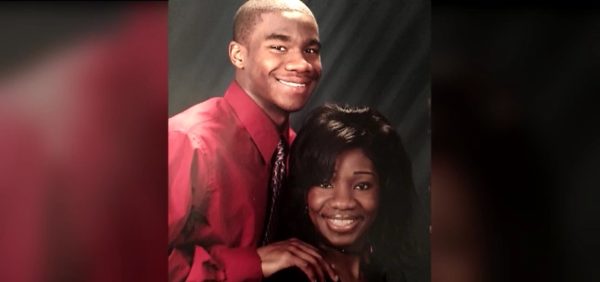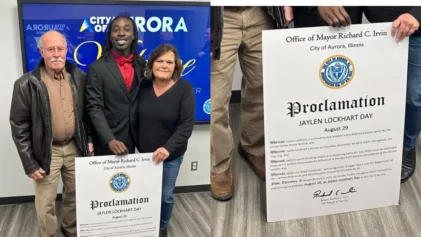A federal appellate court ruled Tuesday that a civil lawsuit against officers who shot a Georgia man about 59 times while executing a fugitive warrant for his arrest can be heard by a jury.
Jamarion Robinson’s mother, Monteria, filed a lawsuit alleging that three officers violated her son’s Fourth Amendment rights and used excessive force when they riddled his body with a barrage of bullets.
Chief U.S. District Judge Timothy Batten dismissed the case last year, ruling that the officers, who were part of a federal-local fugitive task force, had qualified immunity.

However, the 11th U.S. Circuit Court of Appeals in Atlanta upheld the excessive force claims against Deputy U.S. Marshal Eric Heinze and Fulton County Detective Danny Doyle, who died in 2020. The civil claims against Clayton County police Officer Kristopher Hutchens are still dismissed.
Qualified immunity is a legal doctrine that protects public officials from legal prosecution or liability if “they perform their duties reasonably.”
“The district court correctly ruled that Officer Hutchens was entitled to qualified immunity. We agree with Ms. Robinson, however, that the district court erred by granting summary judgment to Officers Doyle and Heinze based on qualified immunity,” the ruling says.
Sixteen police officers went to Robinson’s girlfriend’s apartment in East Pointe on Aug. 5, 2016, to arrest him on charges of arson and aggravated assault of an officer. Authorities said he ignored officers’ orders to drop a gun that he had already fired from the second floor of the apartment complex.
“Throw the gun, son. Come out,” the officers could be heard saying on cellphone video footage of the incident.
The video is also at the center of the lawsuit, according to reports. Robinson’s mother believes that the officers shot the 26-year-old while he was already unconscious. The federal appeals court ruled that qualified immunity does not offer protection against shooting an unconscious suspect.
Court documents show Robinson fell to the ground near the top of the stairs, and the task force members threw a flashbang grenade near him to determine if he was still a threat. Sources said that Heinze, Doyle and Hutchens were at the front of the squad during the encounter.
The officers contend that they fired no rounds after the grenade, but the neighbor’s video captures the audio of another set of gunfire 20 seconds after the flashbang. According to court documents, the gunfire was consistent with Heinze and Doyle’s weapons, but there is no evidence that Hutchens fired his weapon after the flashbang.
“They said, ‘Look, you’re going to have to face the jury on this. The jury has to determine if you shot him because we have a video that draws everything you said into question because it’s unmistakable gunfire that happened after you threw the flashbang and you said you didn’t fire your weapons,’” the family’s attorney, Mario Williams, said.
Heinze and Hutchens entered not guilty pleas to murder charges for Robinson’s death in March. The criminal trial is scheduled to start in mid-September.


